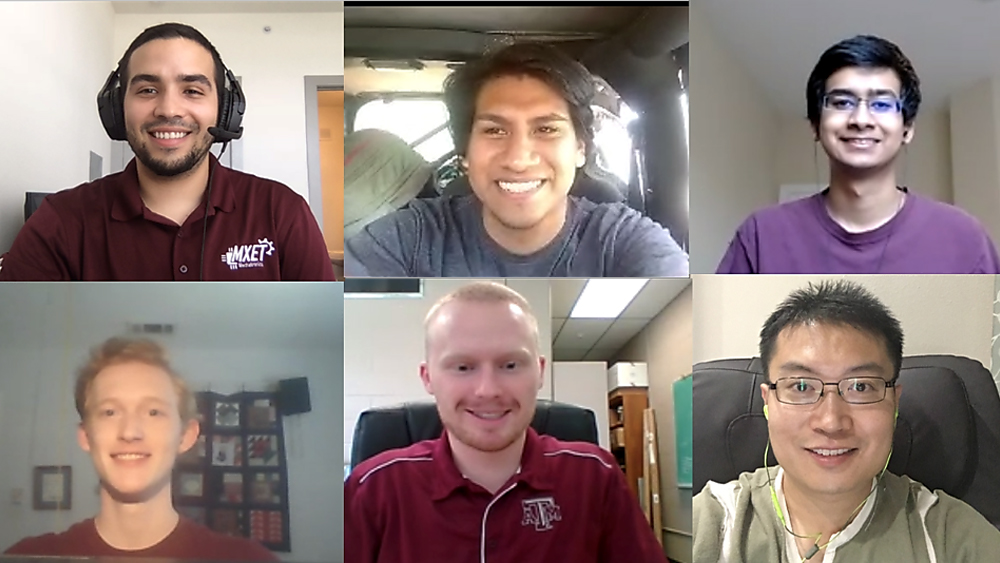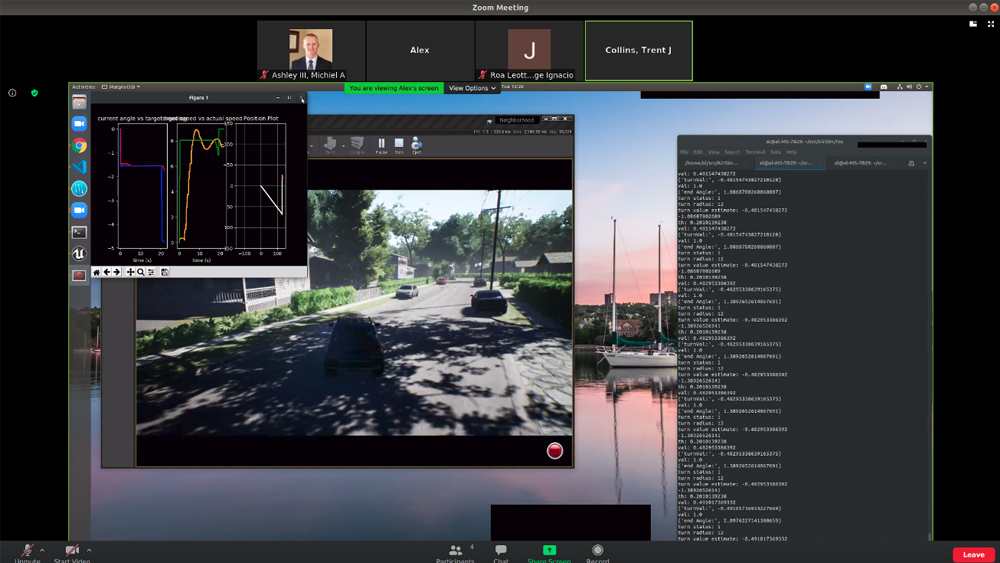
Shell Eco-marathon is one of the world’s leading student engineering competitions. The global academic program brings together STEM (science, technology, engineering and math) students from across the globe to design, build and operate some of the world’s most energy-efficient vehicles in the name of collaboration and innovation as students’ bright ideas help to shape a lower carbon future for all.
Due to the global pandemic, all of Shell’s physical events in 2020 have been cancelled. This motivated the competition committee to adjust to a more virtual environment, so they created the Shell Eco-marathon Autonomous Programming Competition. The competition was developed in partnership with the Southwest Research Institute.
The winning team was from the Texas A&M University College of Engineering.
Department of Engineering Technology and Industrial Distribution (Mechatronics Program)
- Jorge Roa (team leader/actuation)
- Daniyal Ansari (perception)
- Alex Trejos (decision making)
J. Mike Walker '66 Department of Mechanical Engineering
- Mike Ashley (actuation)
- Trent Collins (decision making)
The autonomous competition encouraged the development of energy-efficient autonomy algorithms. The scoring criteria emphasizes conserving energy through how the car is driven and how the algorithms are implemented, while emphasizing maximum efficiency path planning.
Competing teams worked a simulation challenge. Each team was first ranked by the number of goals completed, then by their energy usage, distance, central processing unit usage and time.
Dr. Xinyong Song, team advisor and associate professor in the engineering technology and industrial distribution department, was amazed by his team’s accomplishment.
The students really did a fantastic job. I think that accomplishment truly shows their independence, hard work and fast-learning skills.

The team’s winning entry is analogous to the development of full-scale autonomous vehicles. However, this project represents a new, low-cost entry.
Roa shared his perspective on the difficulty of working as a team virtually during a pandemic.
“We were left with our personal computers to run the simulation environments required to work on the project,” said Roa. “Only two out of the five computers from the team members were able to run the simulations since they had the hardware requirements. This meant that we could not test our own work locally, we had to ask team members to test code for hours.”
Despite working together for the competition over a period of three months, the team never actually met in person.
“I think that is incredible achieving such a friendship and even winning a competition with people that we don’t even know how they look like,” said Roa.
Additional financial and academic support for the team came from Dr. Swaminathan Gopalswamy, research professor in the mechanical engineering department.